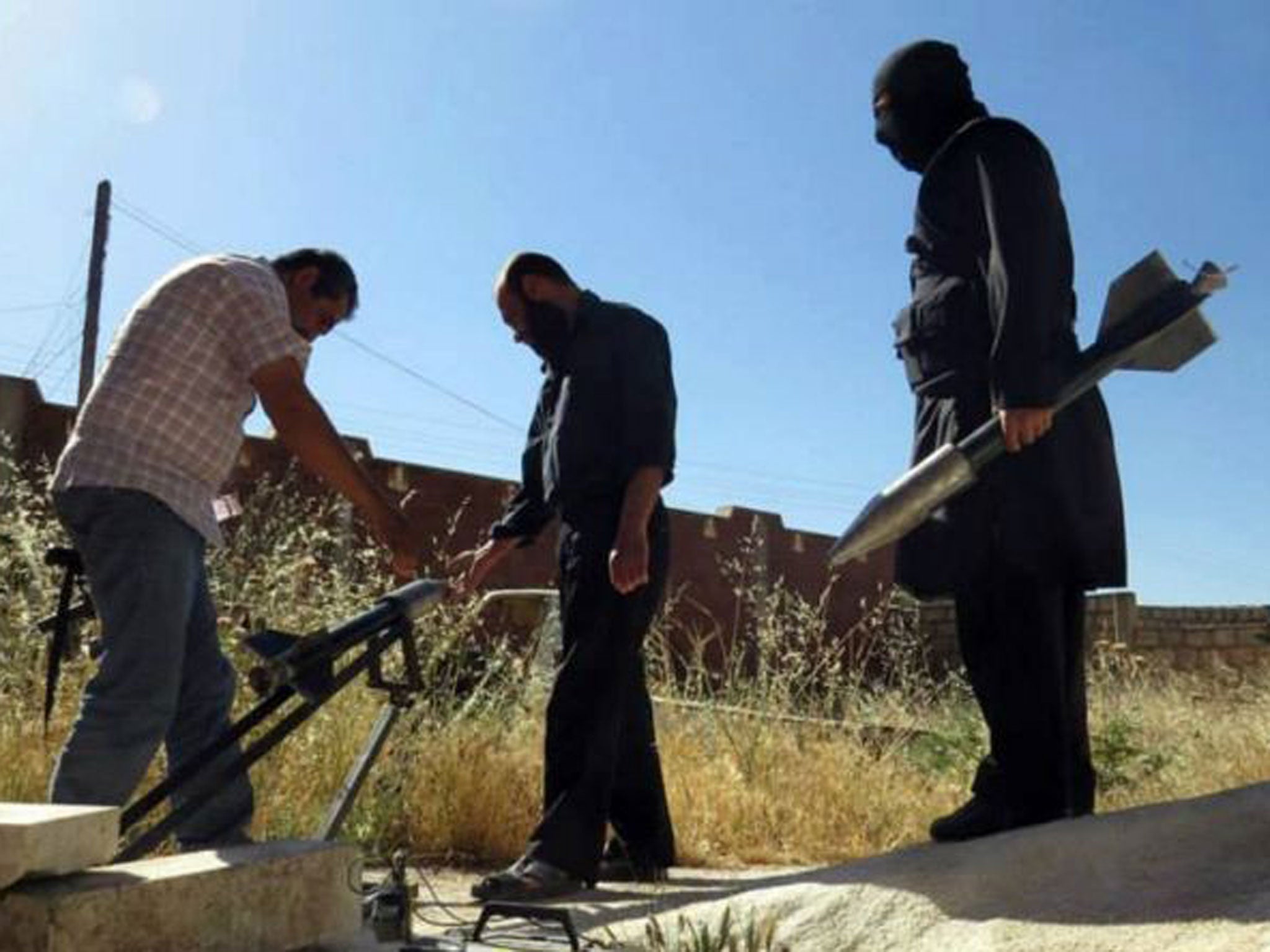Cameron promises MPs vote on whether to arm Syrian rebels
More than 80 Conservative backbenchers demanded opportunity to block supply of weapons

Your support helps us to tell the story
From reproductive rights to climate change to Big Tech, The Independent is on the ground when the story is developing. Whether it's investigating the financials of Elon Musk's pro-Trump PAC or producing our latest documentary, 'The A Word', which shines a light on the American women fighting for reproductive rights, we know how important it is to parse out the facts from the messaging.
At such a critical moment in US history, we need reporters on the ground. Your donation allows us to keep sending journalists to speak to both sides of the story.
The Independent is trusted by Americans across the entire political spectrum. And unlike many other quality news outlets, we choose not to lock Americans out of our reporting and analysis with paywalls. We believe quality journalism should be available to everyone, paid for by those who can afford it.
Your support makes all the difference.MPs have been promised a vote over any move to arm the Syrian opposition forces, with David Cameron facing growing Tory hostility to intervention in the civil war.
They were given the pledge after Downing Street received a demand from more than 80 Conservative backbenchers for an opportunity to block the supply of weapons.
Mr Cameron faces up an uphill struggle to win the endorsement of the House of Commons for any involvement in the war, which has already cost 100,000 lives.
Andrew Lansley, the Commons leader, reassured MPs that any decision to supply British-made arms “would be the subject of debate and an opportunity for a vote in this House”.
Although he did not spell out what form a vote would take, it is likely that ministers would be expected to endorse the policy, while backbenchers from the Coalition parties could be granted a free vote.
Labour, the Liberal Democrats and up to half of Tory backbenchers could oppose arming Syrian rebels.
The Independent disclosed that at least five Cabinet ministers have expressed fears over the plans to arm rebel leaders, which follow the lifting of the European Union weapons embargo on Syria.
Mr Lansley told MPs that the Prime Minister had given them the opportunity in 2011 to debate air strikes on Libya – and would take the same course of action if weapons were dispatched to Syria.
He said Mr Cameron was clear that “any decision relating to the arming of the Syrian National Coalition or others in relation to Syria, would be the subject of debate and an opportunity for a vote in this House”.
Downing Street today received a letter from Tory MP Andrew Bridgen, which was signed by 80 fellow MPs, warning Mr Cameron of “very real concern among colleagues and the public about the possibility of British involvement in Syria escalating”.
It asked for “assurances that prior to any decision being taken to supply arms to the Syrian National Coalition or any other groups in Syria, a full debate and vote will be held in Parliament and that in addition to this, if Parliament is in recess it should be recalled to facilitate this important debate”.
Mr Bridgen told the Commons: “There is considerable concern in this House and the country about us being pulled further into another Middle Eastern conflict where there appear to be many sides but no end.”
Britain and France led calls for the EU to lift its Syrian arms embargo – a stance which was opposed by several other member states.
The Government insists it has no immediate plans to supply weapons to the forces battling to topple Bashar al-Assad, but hopes the threat of arming rebel forces will spur the Syrian President to negotiate over ending the two-year-old war.
Unease within the Cabinet over Syria was underlined by Iain Duncan Smith, the Work and Pensions Secretary, who acknowledged ministers were still undecided over their next step.
“My sense at some point is we need ultimately to decide where we stand on this, one way or the other, we have to make sure we’re not in a halfway house,” he told the BBC.
“We either want to support key rebels – of course, there are risks in that – or we want to say ‘look, we can’t’ and leave them in the clear picture they’re not going to get that support.”
Nick Clegg, the Deputy Prime Minister, also warned it would be “incredibly difficult” to bolster moderate Syrian forces when extremists were “very much setting the pace on both sides of the argument”.
Mr Cameron’s official spokesman insisted there was “complete agreement” within his Cabinet on the issue. He said: “The point of lifting the arms embargo has been to give us the flexibility to respond differently if we think that is the right thing to do, but no decision to provide lethal assistance has been taken.”
Douglas Alexander, the shadow Foreign Secretary, said: “The Prime Minister has allowed speculation to build about the Government's real intentions in relation to arming the opposition.
“But the Government needs to address the very real concerns being addressed across the House of Commons, and be prepared to set out their case.”
Join our commenting forum
Join thought-provoking conversations, follow other Independent readers and see their replies
Comments